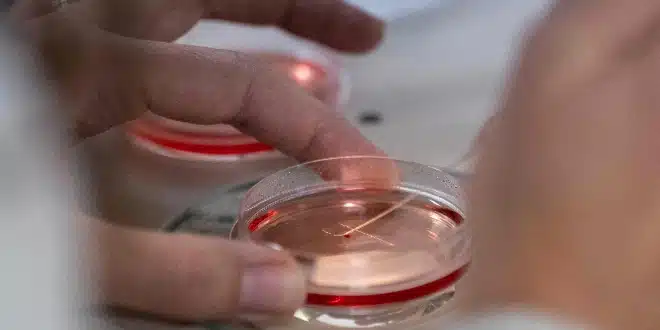Key Points
- Israeli researchers grew kidney organoids that survived 34 weeks — far longer than previous attempts.
- The breakthrough could transform drug testing, kidney disease modeling, and tissue repair.
- The focus is on biomolecules secreted by organoids rather than full organ transplants.
- Sheba Medical Centre is seeking international funding, particularly from Chinese biotech firms.
- China alone has over 150 million cases of kidney disease, making the research highly relevant.
In a major advancement for regenerative medicine, researchers in Israel have successfully grown kidney organoids that survived for more than 34 weeks — a record achievement that could reshape the treatment of chronic kidney disease. The development, led by Sheba Medical Centre in collaboration with Tel Aviv University, marks a significant step toward lab-grown organs and opens the door to new possibilities in clinical research.
A First in Kidney Research
Until now, kidney organoids — synthetic 3D cultures designed to mimic the function of real organs — had only survived for about four weeks. The Sheba team’s success in keeping them alive for over eight months represents an unprecedented milestone.
“This is the first time organoids of this type have survived beyond 34 weeks,” explained Professor Benjamin Dekel, director of Sheba’s Pediatric Nephrology Unit and Stem Cell Research Institute. “It represents a breakthrough in how we can study kidney diseases and potentially repair damaged kidneys.”
Why This Matters
Kidney organoids are seen as powerful tools for understanding disease progression, testing new drugs, and ultimately developing therapies that reduce reliance on animal models like mice. Instead of focusing on whole-cell transplantation, Dekel said the key lies in the molecules secreted by the organoids, which may help regenerate or repair kidney tissue.
“I’m very, very optimistic about the path forward,” Dekel said. “Once we identify which cells to use, the biomolecules they release, and how they contribute to kidney repair in adults, we can begin moving toward clinical translation.”
However, he cautioned that scientific discovery takes time to move from the lab bench to patient care. “Translating research into clinical applications is a gradual process,” he added.
Funding the Next Phase
With this success, Sheba Medical Centre is now seeking funding to begin clinical trials. Dekel emphasized that the hospital is particularly interested in partnerships with biotech companies in China and Hong Kong, regions where kidney disease is a growing health crisis.
“We have a huge interest in Chinese and Hong Kong biotech companies, and I believe they share an interest in tackling chronic kidney disease. We are open to commercialization,” he said.
The urgency of such collaboration is underscored by data from the Clinical Kidney Journal, which estimates that China has approximately 150.5 million cases of kidney disease — a staggering figure that underscores the global need for new solutions.
Looking Ahead
While much work remains before lab-grown kidneys are ready for human use, the Sheba team’s achievement provides hope that the future of regenerative medicine may soon deliver therapies capable of repairing damaged organs without the need for full transplants. If successful, the research could drastically reduce the global burden of kidney disease and lessen the dependence on dialysis and donor transplants.
“This is a giant step,” Dekel concluded, “but the journey toward clinical applications is only beginning.”


